In practice, women and girls are still a vulnerable group, facing many risks of harm to their health, property, honor, and dignity, especially in the digital environment with the strong development of e-commerce, social networks, financial technology platforms, and online services. Therefore, promoting gender equality and ensuring safety for women and girls in the digital age, especially digital consumption, requires comprehensive and synchronous solutions.
What does the Law on Consumer Protection 2023 stipulate?
According to the assessment of the National Competition Commission, the Law on Consumer Protection 2023 has made an important step forward because it has provisions on the protection of women and children. Specifically, according to the provisions of Point d, Clause 1, Article 8 of the Law on Consumer Protection 2023, the subjects "pregnant women or women raising children under 36 months old" and "children" are included in the group of "vulnerable consumers".
This is an important point, stemming from the fact that pregnant women and women with young children often face many difficulties and limitations in the process of shopping and accessing information due to changes in their physical condition, health status, psychology as well as pressure on time and finance. In addition, many international studies and experiences show that the rate of women directly filing complaints and lawsuits when their rights are violated is often lower than that of men due to gender characteristics, such as fear of disputes, fear of collision, and a tendency to only share negative experiences about products and services with relatives and friends.
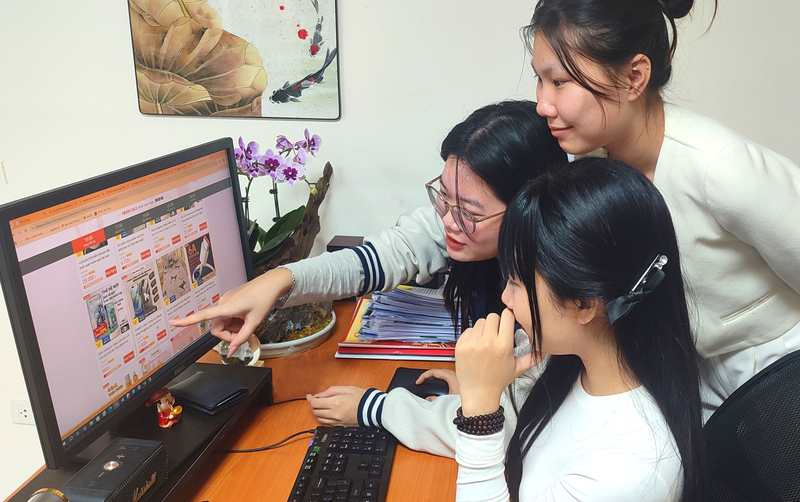
Women and girls remain a vulnerable group, facing many risks of harm to their health, property, honor and dignity, especially in the digital environment with the strong development of e-commerce. Photo: Can Dung
On that basis, to strengthen the protection of vulnerable consumer groups, the Law on Consumer Rights Protection 2023 has stipulated a number of specific responsibilities for business organizations and individuals, notably the responsibility to apply a complaint and dispute settlement mechanism appropriate to each vulnerable consumer group according to Clause 2 and Clause 3, Article 8. These are outstanding provisions, more clearly demonstrating the requirement for "enhanced protection" for pregnant women, women with young children and other vulnerable groups in consumer relations.
The Law on Consumer Protection 2023 also sets out the responsibility of business organizations and individuals in ensuring that products, goods and services are suitable to the characteristics of each consumer group (by age, gender, health status, etc.). At the same time, promote information transparency for products designed and manufactured specifically for each gender. Specifically, Clause 6, Article 21 of the Law on Consumer Protection 2023 stipulates: "Transparency of information on ingredients, functions, and distinct benefits of products, goods manufactured, and services provided specifically for each gender". This provision contributes to ensuring that women, including pregnant women and women with young children, have sufficient, accurate and clear information to consider and choose safe products and services that are suitable for their needs and health status.
Influencers are not allowed to lead consumer behavior without disclosing sponsorship information. This is an important mechanism to protect consumers, including women and girls, who are often exposed to and strongly influenced by promotional content on social networks and digital platforms. Specifically, Point h, Clause 1, Article 10 of the 2023 Law on Consumer Protection stipulates that one of the prohibited acts is: "Not informing in advance or not publicly disclosing to consumers the sponsorship of an influencer in any form to use the image, advice, or recommendations of this person to promote trade or encourage consumers to buy or use products, goods, or services". This regulation requires businesses to make sponsorship relationships transparent, avoiding consumers, especially women and girls, being led to believe in "neutral advice" when it is actually paid commercial content.
For women and children, access to objective, multi-dimensional feedback and assessments from the consumer community is a very important information channel to identify risks and avoid buying unsafe or unsuitable products and services. Point c, Clause 3, Article 10 of the Law on Consumer Protection 2023 prohibits the act of: "Using measures to prevent display or dishonestly displaying feedback and assessments from consumers about products, goods, services, organizations and individuals doing business on digital platforms, except in cases where such feedback and assessments violate the provisions of law or are contrary to social ethics". Thus, digital platforms are not allowed to intentionally "filter out" assessments that are unfavorable to businesses, thereby contributing to ensuring a more transparent and fair information environment for all consumer groups.
Online shopping is becoming a popular shopping trend for many consumers because of its convenience, time savings, lower prices and the opportunity to access many sellers to compare prices. This form of shopping has many advantages but also many negative aspects such as over-selling, unselective shopping due to the attraction of online advertising, marketing, and false advertising.
The Law on Consumer Rights Protection 2023 has devoted Article 38 to specifically regulate cases where consumers can unilaterally terminate the contract, return products, goods or refuse to continue using services in remote transactions (via phone, internet, mobile applications, etc.) and some specific direct transactions. This is an important mechanism to help consumers, including women, have a "cooling-off period", limiting the risk of being lured and influenced by excessive advertising, promotions and advice; at the same time, creating conditions for them to be able to withdraw from the transaction when they realize that the product, goods or service does not match the information provided, does not suit their needs or poses a potential risk to the health and safety of themselves and their children.
Some recommendations to protect women and girls in digital consumption
According to the National Competition Commission, women and children are a vulnerable group, with few opportunities to participate in policy dialogue, consultation, and feedback on the operation of digital platforms, e-commerce, and digital financial services. The voices of girls are almost absent in the process of designing products, services, and applications for children. When the most vulnerable are not fully heard, the consumer protection system is unlikely to cover all the risks in reality.
Therefore, the National Competition Commission recommends that promoting gender equality and ensuring safety for women and girls in the digital age requires comprehensive and synchronous solutions.
Firstly , it is necessary to integrate the principle of gender equality into the system of policies and laws on consumer protection in the digital environment. Documents guiding the implementation of laws on consumer rights protection, electronic transactions, information security, personal data, etc. need to clearly identify women and girls as vulnerable consumer groups, entitled to enhanced protection mechanisms. At the same time, it is necessary to assign specific responsibilities to digital platforms, e-commerce platforms, and social networks in promptly detecting and handling content and acts of harassment, fraud, and infringement of the honor, dignity, and rights of women and girls.
Second , strengthen education on digital skills, financial skills and safe consumption skills for women and girls. Popular programs and guidance documents need to be designed to suit each age group, level, and living conditions, especially targeting women in rural and remote areas and girls in schools. The content does not only stop at risk warnings, but also focuses on building self-protection capacity: how to identify false advertising, how to check the origin of products, how to protect personal information, how to record and store evidence of transactions, how to reflect complaints in the right place and in the right way.
Third, develop gender-friendly support and advice channels. Call centers, applications, and information portals on consumer protection need to ensure confidentiality, be accessible, have clear instructions, and use simple language suitable for women and girls. The team receiving and handling complaints should be trained on gender equality, gender-based violence, and skills to support women and children victims. In addition, it is necessary to strengthen connections with the legal aid system, psychological counseling centers, and violence prevention hotlines to support complex cases.
Fourth, promote corporate social responsibility and digital platforms. Businesses need to proactively review and eliminate advertising content containing gender stereotypes, and not use images of women and girls in a way that is offensive, suggestive, or commercializes the body. At the same time, it is necessary to integrate features to protect women and girls such as: filtering harmful content, quickly reporting violations, spending limits for children's accounts, and warnings about risks when transacting. Initiatives to train digital skills, provide scholarships, and build risk warning tools for women and girls should be encouraged within the framework of corporate social responsibility programs.
Fifth, it is necessary to strengthen communication to change stereotypes and build a positive image of women and girls in consumption. Instead of viewing women and girls as victims or vulnerable subjects, communication and education need to aim at portraying them as smart, proactive consumers with a voice and the right to demand respect and transparency from business organizations and individuals. Close coordination between state management agencies, social organizations, women's associations, schools, families and businesses is the key to creating a fair, safe and friendly digital consumption environment for women and girls.
It can be affirmed that gender equality and safety for women and girls in the digital age are not just issues of a single field or agency, but are a requirement throughout the development and implementation of consumer protection policies. When women and girls are better protected, their voices are heard and respected more, then the general consumer environment can develop in a civilized, sustainable, and human-centered direction in all digital transformation processes.
Currently, the National Competition Commission - a state agency under the Ministry of Industry and Trade that manages consumer rights protection activities has been maintaining a hotline for advice and support for consumer protection 1800.6838. This is a channel to receive and respond to free of charge to feedback, complaints and recommendations from consumers nationwide, operated by the National Competition Commission. Through the hotline, consumers receive legal advice, instructions on how to collect evidence, make complaints, and at the same time, it is an important channel for state agencies to promptly grasp violations and risks in the market in order to take measures to handle and protect the legitimate rights and interests of consumers.
Source: https://congthuong.vn/dong-bo-giai-phap-bao-dam-an-toan-cho-phu-nu-va-tre-em-gai-trong-tieu-dung-so-431137.html














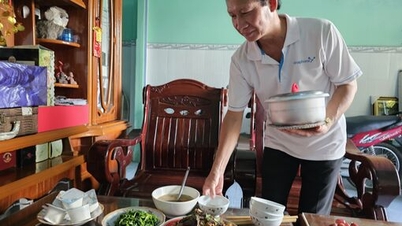


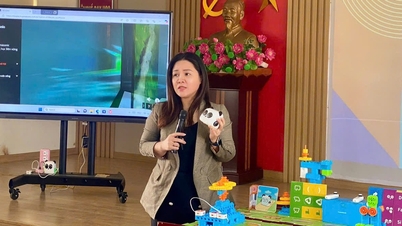



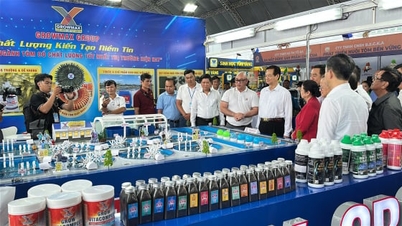











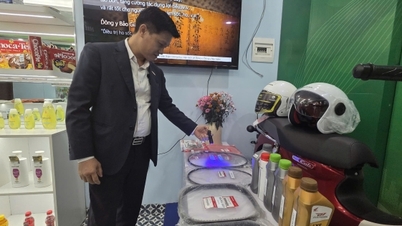













































































Comment (0)